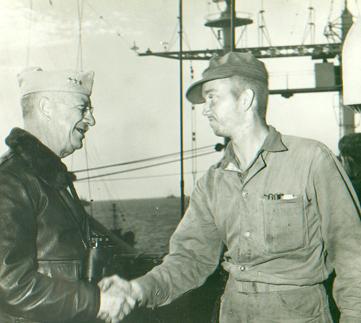REMEMBERING A HERO
Everybody loves a hero. And this March it's time to honor one:
90 years ago this month, on March 10, 1924, a hero was born, Ernest Ivy Thomas, nicknamed "Boots" after his father. Blue-eyed and curly-headed, little Boots and his family moved to Monticello when he was a young boy.
From all appearances, Boots was just an ordinary boy living an ordinary life, but as that boy grew his life and world soon changed. He lost his father at 15, and, as the oldest son, he quickly assumed a man's role. A brilliant boy, Thomas was diligently working his way through his aeronautical engineering degree when the Japanese bombed Pearl Harbor, propelling the U.S. into WWII.
With the enemies of his country so close to home, Boots knew he couldn't continue with college. "I've got to fight," he said and, leaving school and a brilliant career, he stepped forward to take his father's place in defending his mother and two younger siblings from the enemies who threatened their freedoms.
Three weeks shy of his 21st birthday, Platoon Sergeant Boots Thomas, with the other Marines of the Fifth Amphibious Division, churned ashore on the desolate island of Iwo Jima, whose hostile sands housed over 20,000 Japanese soldiers. Long and brutal was the fighting upon those bloody beaches. Thomas' lieutenant was soon wounded and taken out of the action, at which time Boots assumed command of his platoon and resolutely led his men forward against deeply-entrenched enemy emplacements. His fearless actions and astonishing bravery earned him a Navy Cross, but the battle was far from over.

After three days of bitter fighting Boots and the men of his platoon scaled the heights of Mt. Suribachi, the highest point on the island, and planted the Stars and Stripes atop its volcanic crater. The stirring sight cheered the hearts of thousands of weary Marines across the island, and from man to man passed the joyful refrain, "There goes the flag!" As Old Glory waved proudly across the blood-drenched land, many a hardened Marine wept unashamedly at the sight.
With the raising of the flag young Boots Thomas was instantly catapulted from relative obscurity into national fame. His photograph appeared on front pages across the nation, and the deeds of his platoon were spoken of in every state of the Union. But, though newsmen were quick to hail Thomas as a hero, the young sergeant denied their claims, stating simply, "The honor belongs to every man in my platoon."
Boots was quick to set the record straight, for in his view he was, after all, just an ordinary boy, fighting for his family, his home, and his country. And, as an ordinary boy, he died for the same. On March 3rd, 1945, a sniper instantly ended Boots Thomas' life as he was again leading his men forward against an enemy stronghold.
Boots' body was brought home March, 1948, and his remains interred in the Roseland Cemetery in Monticello as the city mourned their young hero. If Boots were alive, he would have objected. "Don't call me a hero," he'd be quick to assert. But, as the Scriptures remind us, "a man is valued by what others say of him" (Prov. 27:21). So what do others say of Boots?
"You can say this," noted the corpsman who was with Thomas when he died, "we'll never have another platoon leader like him." Boots' company commander, Captain Dave Severance, declared of him, "I know of no more appropriate praise than that 'Tommy' was indeed a credit to his parents who raised him." General Lawrence Snowden, another Marine who shared in the battle of Iwo Jima, also remarked of him, "Boots Thomas is the epitome of a national hero." But perhaps most poignantly was the Monticello News of May, 1945, which stated simply, "Greater love hath no man . . ."
Copyright 2014 Psalm 78 Ministries
